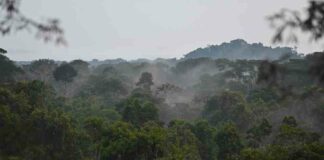Protecting Ancient Forests: WWF Urges Sweden and Finland to Take Action
In a recent report released by the World Wildlife Fund (WWF), it has come to light that the two European countries with the most forested land, Sweden and Finland, are failing to adequately protect their old-growth and primary forests. This issue poses a significant threat to the unique ecosystems in these countries, as well as the climate and biodiversity goals of the European Union.
Deviation from EU Policies
Forest expert Mai Suiminen from WWF Finland highlighted that publicly available evidence indicates that both Sweden and Finland are not aligning with the EU’s Green Deal and Biodiversity Strategy. This departure from EU policies is concerning, given the critical role that these forests play in maintaining biodiversity, climate stability, and long-term ecological health.
Importance of Forest Protection
The protection of old-growth and primary forests is not just a matter of conservation; it is fundamental to the success of a sustainable and circular bioeconomy. Peter Roberntz, WWF Sweden forest expert, emphasized the significance of forest protection in achieving Europe’s biodiversity and climate goals. Moreover, forests serve as a crucial carbon sink, helping to mitigate climate change.
Challenges and Criticisms
Despite the importance of forest protection, both Swedish and Finnish governments have been criticized for allowing logging in forests that should be safeguarded. This ongoing loss of primary and old-growth forests due to clear-cutting poses a severe threat to the environment and erodes public trust in national governments and the EU.
Recommendations and Call to Action
WWF has put forth several recommendations in its report, including respecting the rights of Indigenous Samí People and imposing a moratorium on logging in delineated old-growth and primary forests in Sweden. The organization has called on the European Commission to monitor the implementation of the EU’s Biodiversity Strategy to ensure the protection of Europe’s last great forests.
As we navigate the complexities of environmental conservation and policymaking, it is essential to remember that our actions today will shape the future of our planet. The decisions we make now regarding forest protection and conservation efforts will have far-reaching impacts on biodiversity, climate stability, and the well-being of future generations. Let us heed the call to action from organizations like WWF and work together to safeguard our ancient forests before it’s too late.














